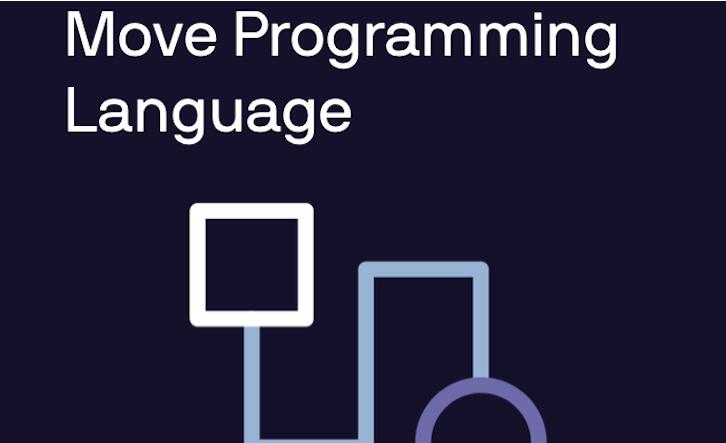Facebook区块链项目Libra的其中一个技术亮点,就是它使用了一种称为Move的新编程语言,那么这种语言是怎样的呢,今天我们就从其官方的概述资料入手,近距离了解这种新的语言。
以下内容为译文:
Move是一种新的编程语言,它为Libra区块链提供了一个安全和可编程的基础。Libra区块链中的账户是任意数量Move资源及Move模块的容器。提交至Libra 区块链的每个事务,都使用以 Move语言编写的事务脚本对其逻辑进行编码。
这个事务脚本可调用模块声明的过程来更新区块链的全局状态。
在本指南的第一部分内容中,我们将概括性地介绍Move语言的主要特点:
1. Move事务脚本启用可编程事务;
2. Move模块允许组合型智能合约;
3. Move语言具有第一类资源(First Class Resource);
对于求知欲强的读者来说,Move编程语言的技术论文包含了更多关于该语言的细节信息:
在本指南的第二部分,我们将向你展示如何在Move中间代码优化(IR)的环境下编写自己的应用。初始的测试网并不支持自定义Move程序,但这些功能可供你在本地试用。

一、Move语言的主要特点
1、1 Move事务脚本启用可编程事务
1. 每个Libra事务都包含一个Move事务脚本,该脚本对验证者应代表客户端执行的逻辑进行编码(例如,将Libra币从Alice的账户移动到Bob的账户);
2. 事务脚本通过调用一个或多个Move模块的过程,与Libra区块链全局存储中发布的Move资源进行交互;
3. 事务脚本不会存储在全局状态当中,因此其它事务脚本无法调用它,这是一个一次性程序;
4. 我们在编写事务脚本时,提供了几个事务脚本示例;
1、2 Move 模块允许组合型智能合约
Move模块定义了更新Libra区块链全局状态的规则。Move模块与其它区块链中的智能合约一样都是解决相同的问题。模块声明了可在用户账户下发布的资源类型。Libra区块链中的每个账户都是任意数量资源和模块的容器。
1. 模块声明结构类型(包括资源,这是一种特殊的结构)以及过程;
2. Move模块的过程,定义了创建、访问以及销毁其声明类型的规则。
3. 模块是可重用的。一个模块中声明的结构类型,可以使用另一个模块中声明的结构类型,并且一个模块中声明的过程可以调用另一个模块中声明的公共过程。模块可以调用在其他Move模块中声明的过程。事务脚本可以调用已发布模块的任何公共过程。
4. 最终,Libra用户将能在自己的帐户下发布模块。
1、3 Move语言具有第一类资源
1. Move的主要功能是定义自定义资源类型。资源类型用于编码具有丰富可编程性的安全数字资产。
2. 资源是语言中的普通值,它们可存储为数据结构,作为参数传递给procedure,从procedure返回,等等;
3. Move类型系统为资源提供了特殊的安全保障。Move资源不能复制、重复使用或丢弃。资源类型只能由定义该类型的模块创建或销毁。这些保障是由Move虚拟机通过bytecode验证静态地强制执行的。Move虚拟机将拒绝运行尚未通过bytecode检验器的代码;
4. Libra币作为一种资源类型,其名称为LibraCoin.T。LibraCoin.T在语言中没有特殊的地位,每种资源都享有相同的保护待遇;
二、 Move语言底层
2、1 Move中间代码优化(IR)
本节介绍如何使用Move IR 编写事务脚本以及模块。先提醒下读者,这个Move IR 目前还处于早期的阶段,因此并不稳定,它也是接下来会介绍的Move 源语言的前身(有关详细信息,请参阅未来开发者体验部分内容)。Move IR是在Move bytecode之上的一个很薄的语法层,用于测试bytecode验证者以及虚拟机,它对开发者而言不是特别友好。Move IR足以用于编写人类可读的代码,但无法直接转换为Move bytecode。尽管Move IR还是有些粗糙,我们还是对这个Move语言感到兴奋,并希望开发者们可以尝试一下它。
我们会介绍关于Move IR的重要演示代码段,并鼓励读者通过在本地编译、运行和修改示例来了解它。libra/language/README.md以及libra/language/ir_to_bytecode/README.md的说明文件解释了如何执行此操作。
2、2 编写事务脚本
正如我们在Move事务脚本启用可编程事务部分内容中所解释的,用户编写事务脚本,以请求对Libra区块链的全局存储进行更新。几乎任何事务脚本中都会出现两个重要的构建块:LibraAccount.T和LibraCoin.T资源类型,LibraAccount是模块的名称,T是该模块声明的资源的名称。这是在Move中常见的命名规则。模块声明的“main”类型通常命名为T.
当我们说一个用户“在Libra区块链上拥有一个地址为0xff的帐户”时,我们的意思是,这个0xff地址持有LibraAccount.T资源的实例。每个非空地址都有一个LibraAccount.T资源。此资源存储账户数据,如序列号、验证密钥和余额。要与帐户交互的Libra系统的任何部分,都必须通过从LibraAccount.T资源中读取数据或调用LibraAccount模块的过程。
账户余额是LibraCoin.T的一种类型资源。正如我们在Move具有第一类资源部分内容中解释的,这是Libra币的一种类型。这种类型是语言中的“第一类公民”,就像其他Move资源一样。LibraCoin.T的类型的资源可以存储在过程变量中,在过程之间传递,等等。
我们鼓励感兴趣的读者在libra/language/stdlib/modules/ directory目录下检查LibraAccount和LibraCoin模块中这两个关键资源的Move IR定义,
现在,让我们看看程序员如何在一个事务脚本中与这些模块和资源交互。
// Simple peer-peer payment example.
// Use LibraAccount module published on the blockchain at account address
// 0x0...0 (with 64 zeroes). 0x0 is shorthand that the IR pads out to
// 256 bits (64 digits) by adding leading zeroes.
import 0x0.LibraAccount;
import 0x0.LibraCoin;
main(payee: address, amount: u64) {
// The bytecode (and consequently, the IR) has typed locals. The scope of
// each local is the entire procedure. All local variable declarations must
// be at the beginning of the procedure. Declaration and initialization of
// variables are separate operations, but the bytecode verifier will prevent
// any attempt to use an uninitialized variable.
let coin: R#LibraCoin.T;
// The R# part of the type above is one of two *kind annotation* R# and V#
// (shorthand for "Resource" and "unrestricted Value"). These annotations
// must match the kind of the type declaration (e.g., does the LibraCoin
// module declare `resource T` or `struct T` ).
// Acquire a LibraCoin.T resource with value `amount` from the sender's
// account. This will fail if the sender's balance is less than `amount`.
coin = LibraAccount.withdraw_from_sender(move(amount));
// Move the LibraCoin.T resource into the account of `payee`. If there is no
// account at the address `payee`, this step will fail
LibraAccount.deposit(move(payee), move(coin));
// Every procedure must end in a `return`. The IR compiler is very literal:
// it directly translates the source it is given. It will not do fancy
// things like inserting missing `return`s.
return;
}
此事务脚本存在着一个不幸的问题:如果地址接收方没有账户,它将失败。我们将通过修改脚本来解决这个问题,为接收方创建一个账户(如果接收方还不具备账户的话)。
// A small variant of the peer-peer payment example that creates a fresh
// account if one does not already exist.
import 0x0.LibraAccount;
import 0x0.LibraCoin;
main(payee: address, amount: u64) {
let coin: R#LibraCoin.T;
let account_exists: bool;
// Acquire a LibraCoin.T resource with value `amount` from the sender's
// account. This will fail if the sender's balance is less than `amount`.
coin = LibraAccount.withdraw_from_sender(move(amount));
account_exists = LibraAccount.exists(copy(payee));
if (!move(account_exists)) {
// Creates a fresh account at the address `payee` by publishing a
// LibraAccount.T resource under this address. If theres is already a
// LibraAccount.T resource under the address, this will fail.
create_account(copy(payee));
}
LibraAccount.deposit(move(payee), move(coin));
return;
}
让我们看一个更复杂的例子。在这个例子中,我们将使用事务脚本为多个接收方进行支付(而不是单个接收方)。
// Multiple payee example. This is written in a slightly verbose way to
// emphasize the ability to split a `LibraCoin.T` resource. The more concise
// way would be to use multiple calls to `LibraAccount.withdraw_from_sender`.
import 0x0.LibraAccount;
import 0x0.LibraCoin;
main(payee1: address, amount1: u64, payee2: address, amount2: u64) {
let coin1: R#LibraCoin.T;
let coin2: R#LibraCoin.T;
let total: u64;
total = move(amount1) + copy(amount2);
coin1 = LibraAccount.withdraw_from_sender(move(total));
// This mutates `coin1`, which now has value `amount1`.
// `coin2` has value `amount2`.
coin2 = LibraCoin.withdraw(&mut coin1, move(amount2));
// Perform the payments
LibraAccount.deposit(move(payee1), move(coin1));
LibraAccount.deposit(move(payee2), move(coin2));
return;
}
好了,到这里,我们就结束了事务脚本部分的展示,有关更多例子,包括初始测试网中支持的事务脚本,请参阅
libra/language/stdlib/transaction_scripts
2、3 编写模块
现在,我们把注意力集中到编写自己的Move模块上,而不仅仅是重用现有的LibraAccount和LibraCoin模块。考虑这样一个情况:Bob将来某个时候将在地址a创建一个帐户,Alice想要“指定”Bob一笔资金,以便他可以在账户创建后将其存入自己的帐户。但她也希望,如果Bob一直不创建一个账户,她就能收回这笔资金。
为了解决Alice的这个问题,我们将编写一个专用的EarmarkedLibraCoin模块,它会:
1. 声明一个新的资源类型EarmarkedLibraCoin.T,它封装了一笔Libra币以及接收方地址;
2. 允许Alice创建此类型资源,并在其账户下发布(create过程);
3. 允许Bob声明资源(claim_for_recipient过程);
4. 允许任何拥有EarmarkedLibraCoin.T资源类型的人销毁它,并获取底层的Libra币(unwrap过程);
// A module for earmarking a coin for a specific recipient
module EarmarkedLibraCoin {
import 0x0.LibraCoin;
// A wrapper containing a Libra coin and the address of the recipient the
// coin is earmarked for.
resource T {
coin: R#LibraCoin.T,
recipient: address
}
// Create a new earmarked coin with the given `recipient`.
// Publish the coin under the transaction sender's account address.
public create(coin: R#LibraCoin.T, recipient: address) {
let t: R#Self.T;
// Construct or "pack" a new resource of type T. Only procedures of the
// `EarmarkedCoin` module can create an `EarmarkedCoin.T`.
t = T {
coin: move(coin),
recipient: move(recipient),
};
// Publish the earmarked coin under the transaction sender's account
// address. Each account can contain at most one resource of a given type;
// this call will fail if the sender already has a resource of this type.
move_to_sender(move(t));
return;
}
// Allow the transaction sender to claim a coin that was earmarked for her.
public claim_for_recipient(earmarked_coin_address: address): R#Self.T {
let t: R#Self.T;
let t_ref: &R#Self.T;
let sender: address;
// Remove the earmarked coin resource published under `earmarked_coin_address`.
// If there is resource of type T published under the address, this will fail.
t = move_from(move(earmarked_coin_address));
t_ref = &t;
// This is a builtin that returns the address of the transaction sender.
sender = get_txn_sender();
// Ensure that the transaction sender is the recipient. If this assertion
// fails, the transaction will fail and none of its effects (e.g.,
// removing the earmarked coin) will be committed. 99 is an error code
// that will be emitted in the transaction output if the assertion fails.
assert(*(&move(t_ref).recipient) == move(sender), 99);
return move(t);
}
// Allow the creator of the earmarked coin to reclaim it.
public claim_for_creator(): R#Self.T {
let t: R#Self.T;
let coin: R#LibraCoin.T;
let recipient: address;
let sender: address;
sender = get_txn_sender();
// This will fail if no resource of type T under the sender's address.
t = move_from(move(sender));
return move(t);
}
// Extract the Libra coin from its wrapper and return it to the caller.
public unwrap(t: R#Self.T): R#LibraCoin.T {
let coin: R#LibraCoin.T;
let recipient: address;
// This "unpacks" a resource type by destroying the outer resource, but
// returning its contents. Only the module that declares a resource type
// can unpack it.
T { coin, recipient } = move(t);
return move(coin);
}
}
Alice可以为Bob创建一种预先安排的币,方法是创建一个事务脚本,调用Bob的地址a的create,以及她所拥有的LibraCoin.T。一旦地址a被创建,Bob就可以通过从a发送一个事务来领取这笔币,这会调用claim_for_recipient,将结果传递给unwrap,并将返回的LibraCoin存储在他希望的任何地方。如果Bob在创建a的过程中花费的时间太长,而Alice想要收回她的资金,那么Alice可以使用 claim_for_creator,然后unwrap。
观察型读者可能已经注意到,本模块中的代码对LibraCoin.T的内部结构不可知。它可以很容易地使用泛型编程(例如,resource T { coin: AnyResource, ... })编写。我们目前正致力于为Move增加这种参量多态性。
2、4 未来开发者体验
在不久的将来,Move IR将稳定下来,编译和验证程序将变得更加对用户友好。此外,IR源的位置信息将被跟踪,然后传递给验证者,以使错误消息更容易排错。然而,IR将继续作为测试Move bytecode的工具。它是作为底层bytecode的一种语义透明的表示。
为了允许有效的测试, IR编译器需生成错误的代码,这些代码将被bytecode验证者拒绝,或在编译器的运行时失败。
而对用户友好的源语言则是另一种选择,它应该拒绝编译在管道的后续步骤中将失败的代码。
未来,我们将拥有更高层次的Move源语言。这种源语言将被设计成安全而容易地表达常见的Move惯用语和编程模式。由于Move bytecode是一种新语言,而Libra区块链是一种新的编程环境,我们对应支持的习惯用法和模式的理解,仍在不断发展。目前,源语言还处于开发的早期阶段,我们还没有为它准备好发布时间表。
—-
编译者/作者:不详
玩币族申明:玩币族作为开放的资讯翻译/分享平台,所提供的所有资讯仅代表作者个人观点,与玩币族平台立场无关,且不构成任何投资理财建议。文章版权归原作者所有。
|

